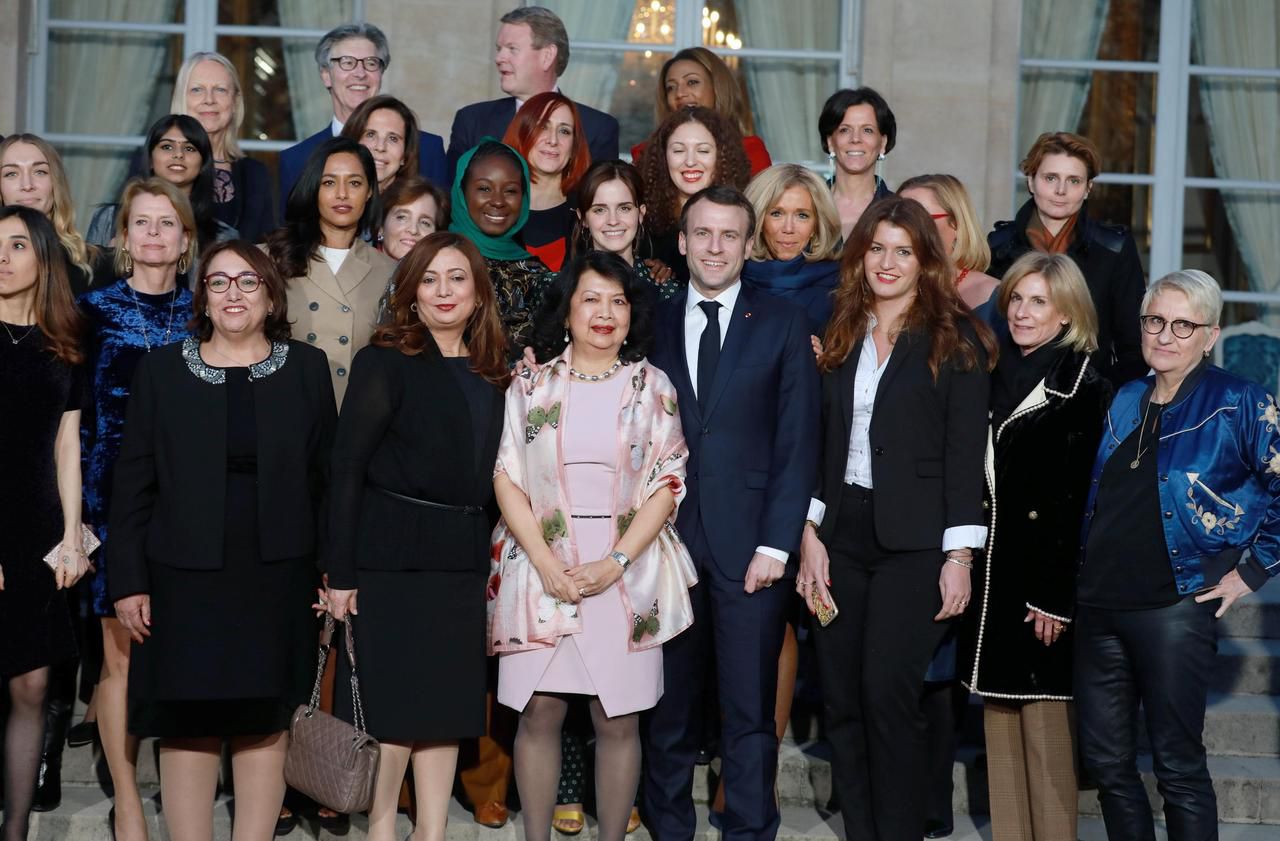While several mechanisms for more equality between men and women have been put in place in recent years, what about gender parity in the bosom of public power? State of play.
In the senior civil service
If the public service employs 62% women, the proportion is reversed for positions of power: 68% are men. Nevertheless, the rate of hiring female civil servants in these senior management and executive positions (first-time appointments) is increasing significantly each year: in the first half of 2020, it was 47%, compared to 37% in 2019.
Since 2017, the objective has been to reach at least 40% of women hired in senior management. Objective about to be exceeded this year. The Sauvadet law of 2012 also forces public employers to pay 90,000 euros if this percentage is not obtained. In 2018, the ministries of Foreign Affairs, Agriculture, the Armed Forces, the Economy and the Interior were forced to comply with this contribution.
Many women appointed to key positions in the Republic this morning in the Council of Ministers. Congratulations to each of them! The feminization of our senior civil service is a concrete reality. We continue ! 👌
- Élisabeth Moreno (@ 1ElisaMoreno) July 29, 2020On the side of the highest representatives of the State in the “territories”, 38 prefects currently against 24 before the train of appointments of July, they represent only a third of the prestigious prefectural body (34.5%). In diplomacy, it is even less: out of 176 ambassadors, 47 are women.
Note that some positions have always been occupied by men. The High Council for Equality between Women and Men counts ten in public institutions, diplomacy, the police and the army. When will a chief of staff of the armed forces, an ambassador of France in the United States or a public prosecutor of Paris?
Among the elected representatives of the Republic
If the law for parity in politics celebrated its twentieth anniversary last June, it has not yet achieved its objectives. "It is only effective in instances where it is mandatory and where there is a financial constraint: in the Assembly for example, where parties can no longer afford to refuse parity between women and men. », Explains Laure Bereni, sociologist at the CNRS, member of the Maurice Halbwachs Center.
In 2017, the parties had invested 3,344 candidates, or 42.4% of all registered candidates. The hemicycle now has 38.8% female deputies against 27% in 2012. Clear increase: they were only 10% twenty years earlier.
But these advances need to be qualified, especially at local levels: if women are now on par with men in departmental councils (they represent 50.1% of councilors), the highest positions remain occupied by them: 90, 1% of departmental council presidents are men, according to a report from the High Council for Equality.
Political Newsletter
Every day, political news seen by Le ParisienI'm registering
Your email address is collected by Le Parisien to enable you to receive our news and commercial offers. Learn more
Another white area of parity, intercommunalities: 35% of women are community councilors and only 20% are vice-presidents. As for the mayors, 77% of the heads of the 2020 municipal lists were male. A figure that will not shake up the victory of women in five of the ten largest cities (Paris, Marseille, Strasbourg, Lille and Nantes) at the end of June.
In ministerial offices
If on the front of the stage Emmanuel Macron displays a parity government, even more feminine than masculine (22 women for 20 men), the reality behind the scenes is different. In the office of the President of the Republic, there are 11 men for one woman only, and 24 men out of 34 advisers at the Elysee. "Where quotas are not imposed, the absence of women is flagrant," analyzes Laure Bereni, a specialist, in particular, in gender issues.
In the Castex government, parity is still a distant horizon. There are 29 male cabinet directors against 11 women (2 positions have not yet been filled), and none is director in a sovereign ministry. The only positive point is the appointment, for the first time, of a woman, Claire Landais, to the strategic position (we are unofficially talking about No. 1 civil servants) of secretary general of the government.
Within public enterprises
A woman at the head of the SNCF? The hypothesis had for a time the favor of the Elysee Palace which would have seen a duo take the head of the railway company. Tandem formed by Rachel Picard, the boss of the TGV, and… Jean Castex who therefore almost took another train than that of Matignon. Ultimately, it was a man, Jean-Pierre Farandou, who got the job. At Engie, the former GDF-Suez, the Elysée was, this time, opposed to the appointment of Isabelle Kocher at the helm of the French energy giant.
Despite the priority given to parity in speeches, these two episodes clearly illustrate the difficulty of promoting women to key positions in the Republic. La Poste, EDF, Aéroports de Paris… public companies continue to be run by men, with two exceptions: Catherine Guillouard, at RATP, and Delphine Ernotte at France Télévisions.
Poor record. However, in the previous government, Muriel Pénicaud and Marlène Schiappa tried to advance this subject of parity in economic life. Before leaving her post as Secretary of State for Equality between Women and Men, the second carried a bill aimed at establishing a quota of women in the management committees of companies. A revolution in a country where no woman is seated in the chair of the chairman of a CAC 40 group, including those in which the State is a shareholder (Renault, Air France, Orange, etc.). The Minister of the Economy, Bruno Le Maire, is in favor of such quotas. In his general policy speech on July 15, Jean Castex did not say a word about it.

